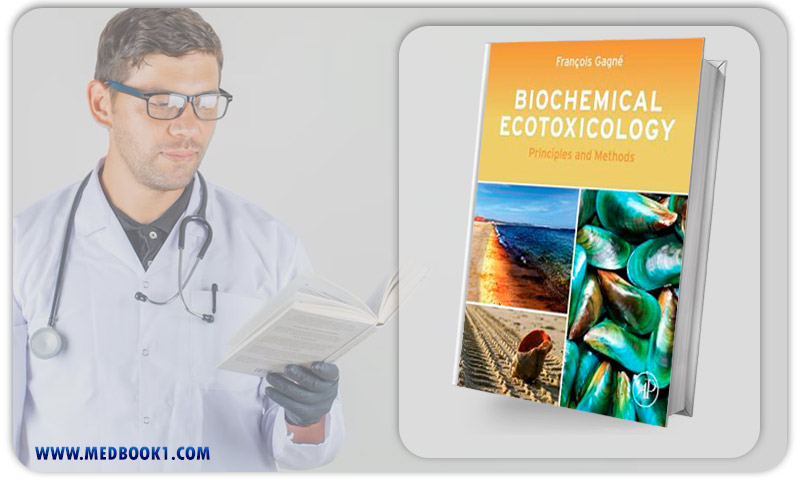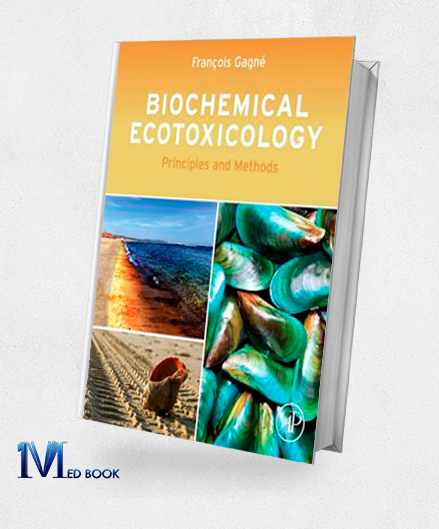Biochemical Ecotoxicology Principles and Methods (ORIGINAL PDF from Publisher)
Biochemical Ecotoxicology Principles and Methods (ORIGINAL PDF from Publisher)
$94.00 Original price was: $94.00.$25.10Current price is: $25.10.
- The files will be sent to you via E-mail
- Once you placed your order, we will make sure that you receive the files as soon as possible
Biochemical Ecotoxicology Principles and Methods (ORIGINAL PDF from Publisher)
“Biochemical Ecotoxicology Principles and Methods” is a comprehensive resource that offers practical and cost-effective approaches for conducting experiments in the field of biochemical ecotoxicology, with a focus on environmental protection and conservation.
This invaluable reference provides a systematic and step-by-step guide to toxicity endpoint testing, suitable for laboratories of all sizes and budgets.
Each chapter introduces a cutting-edge principle, along with affordable procedures and relevant reagents. Case studies and demonstrations are included to facilitate result analysis.
Biochemical Ecotoxicology Principles and Methods covers generic techniques applicable to various organisms, as well as high-throughput methods like quantitative polymerase chain reactions and enzyme-linked immunoassays.
It also explores advanced techniques such as gPCR arrays and lipidomic analysis.
Whether you are a researcher, student, or professional involved in environmental toxicity assessment, Biochemical Ecotoxicology Principles and Methods is an essential tool for your scientific endeavours.

Biochemical Ecotoxicology Principles and Methods (ORIGINAL PDF from Publisher)
1.2.Key Features
Key features of “Biochemical Ecotoxicology Principles and Methods” include:
- Practical Approaches: Biochemical Ecotoxicology Principles and Methods provide practical and cost-effective methods for conducting experiments in biochemical ecotoxicology, making it suitable for laboratories with varying resources.
- Step-by-Step Guidance: Readers are introduced to a methodical and systematic approach to toxicity endpoint testing, allowing for easy implementation and experimentation.
- Comprehensive Coverage: Biochemical Ecotoxicology Principles and Methods covers a wide range of techniques suitable for different types of organisms, ensuring their relevance across various research areas.
- Case Studies: Each chapter includes case studies that help readers understand the practical application of the methods presented.
- Result Analysis: Demonstrations and guidance on result analysis are provided, ensuring that researchers can effectively interpret their findings.
- Cutting-Edge Techniques: Biochemical Ecotoxicology Principles and Methods include advanced techniques such as ‘omics’ approaches to toxicology, keeping readers up-to-date with the latest developments in the field.
- Suitable for Environmental Protection: Biochemical Ecotoxicology Principles and Methods is focused on environmental protection and conservation making it a valuable resource for those working to assess and mitigate environmental toxicity.
- Accessible Language: The content is written in a clear and accessible language, making it suitable for a wide range of readers, including researchers, students, and professionals in the field of ecotoxicology.

Biochemical Ecotoxicology Principles and Methods
1.3. About Writer
Francois Gagne is a distinguished scientist and author renowned for his significant contributions to the field of environmental toxicology and ecotoxicology.
With a background in environmental science and a PhD in toxicology, he has dedicated his career to researching the effects of environmental contaminants on ecosystems and organisms.
Dr. Gagne’s work has focused on developing innovative methods and techniques for assessing and mitigating environmental toxicity.
Throughout his career, Francois Gagne has been instrumental in advancing the understanding of biochemical ecotoxicology.
He has authored numerous research papers, articles, and books on the subject, including the well-regarded “Biochemical Ecotoxicology Principles and Methods.”
This book has become a seminal reference for researchers, students, and professionals seeking practical approaches to assessing and addressing environmental toxicity.
Dr. Gagne’s expertise and commitment to environmental protection have made him a respected figure in the field, and his work continues to inspire advancements in ecotoxicology and the safeguarding of our natural environment.

Biochemical Ecotoxicology Principles and Methods (ORIGINAL PDF from Publisher)
Summary
“Biochemical Ecotoxicology Principles and Methods” offers a comprehensive guide to conducting experiments in biochemical ecotoxicology for environmental conservation and protection.
This book presents practical, cost-effective approaches suitable for laboratories of varying sizes and budgets.
Each chapter introduces state-of-the-art principles, affordable procedures with the necessary reagents, case studies, and detailed instructions for result analysis.
The methods covered apply to a wide range of organisms, and the book also delves into high-throughput techniques such as quantitative polymerase chain reactions and enzyme-linked immunoassays.
Biochemical Ecotoxicology Principles and Methods even explore cutting-edge approaches like gene expression profiling and lipidomic techniques.
With a focus on toxicity endpoint testing, this book serves as an essential resource for professionals and researchers engaged in assessing and mitigating environmental toxicity, providing them with practical tools to safeguard our ecosystems.
Best and Taylors Physiological Basis of Medical Practice 13th Edition
Workbook for Textbook of Radiographic Positioning and Related Anatomy 8th Edition



Reviews
There are no reviews yet.